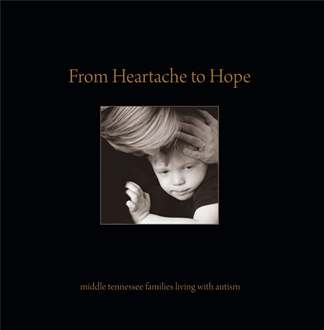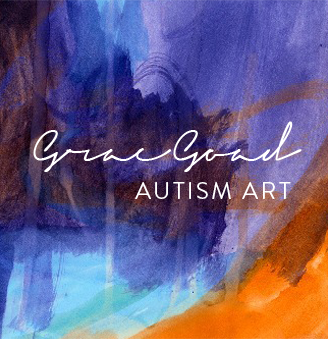Thanks to my Atlanta friend, Joe Westbury, a lover of all things cultural, I learned about the initial film in the brilliant Qatsi series. In commemoration of Earth month, last week I shared on The Journey with Grace, the amazing film Koyaanisqatsi. Subtitled "Life Out of Balance," the film shows, via inspiring yet graphic images set to the moving music of composer Philip Glass, the toll that humankind has racked upon Mother Earth. I watched the first film on PBS in 1984, two years after it's release.
Powaqqatsi was released in 1988. Joe saw it in one of Atlanta's art theaters and I missed it. His report back was that it was depressing. I didn't reconnect with the series until my friendship began last decade with filmmaker Jon Kent whose movie "Embraceable," and an accompanying photography exhibit on Williams Syndrome, will be featured on the opening night of the Spout Film Festival this Friday, April 27, in New York.
On the shelves in his Nashville Kent Creative office, Jon had rows of the best of the best–the most inspiring films he'd seen. And there it was, the Qatsi series, all three–the films I had yearned to see and revisit. For 28 years, the powerful imagery, music and message of Koyannisqatsi, the first film, had haunted me. I grabbed them and clutched them to my chest and Jon graciously loaned them to me until I could obtain my own copies. (You can rent them via Netflix or purchase them on Amazon.)
I disagree with my friend, Joe, however. Yes, Powaqqatsi, in its' message, is depressing. The reality of what the indulgent lifestyles of most civilized western culture has done to our entire planet and her people is depressing. But the music and the images used to capture this message make Powaqqatsi my favorite of the trilogy. See what you think:
The film opens with the beauty, joy and innocence of the work-play-life of "primitive" people in Asia, Africa, India, the Middle East and South America. But, then it switches abruptly and grows dark and heart-heavy as it portrays, again, as with Koyannisqatsi, no words, how life is transformed in these cultures when they adopt western ways. Like the title of the first film, Powaqqatsi is a Hopi Indian word. It's meaning is "parasitic way of life" or "life in transition." From Wikipedia: "While Koyaanisqatsi focused on modern life in industrial countries, Powaqqatsi, […] focuses more on the conflict in third world countries between traditional ways of life and the new ways of life introduced with industrialization."
Glass and the brilliant director and the brain behind the film series, Godfrey Reggio, collaborated differently with Powaqqatsi. This time Glass wrote the music and then the movie was filmed to the music versus the typical reversal. Next week I intend to feature the last in the Qatsi series: Naqoyqatsi. There is also some imagery visually celebrating and recognizing the beauty in other cultures' spiritual traditions.
Godfrey was so far ahead of our time when he created this trilogy. Watching them now up to 30 years later (from the first one,) his message is more timely and potent than ever and once again, another nudge toward the 2012 shift. We must wake up to what we are doing to our planet and our fellow and sister human beings inhabiting it.
I hope you'll watch the video above and see the series. Come back here and tell me what you think, will you? And in the meantime, don't forget that you've got four more days to check out the terrific flicks here at the Nashville Film Festival. I took in three this weekend and squeezing in one more. Next week I intend to share on The Journey with Grace about one or two of them.





Looking through the eyes of someone having recently moved from Memphis (the Hinterlands) to Atlanta (the Emerald City) the movie was very depressing. I was just learning my way around Atlanta’s art houses and found the movie depressing but at the same time visually studding. The music was beautifully scored. But as the years passed I came to embrace it for the piece of art it was and fell in love with all three entries in the series. I even fell in love with Philip Glass’s music and now own several CDs. His music is very evocative of feelings on many different levels.
To be honest that series, and the others I saw at dearly departed Lindbergh Center, broadened me in ways I still cherish. I remember well the days of getting up and looking over the city from my 21st floor apartment, riding the MARTA train to the Arts Center Station to transfer to the Peachtree Road bus to get to the Cup and Chaucer coffee shop at the Peachtree Battle bookstore, then take the same bus up the street again to the Lindbergh MARTA station to walk across the street to view the art movies. Ah, what days those were, being stretched beyond my imagination
To paraphrase Samuel Johnson, “When a man is tied of Atlanta, he is tired of life!”
I will soon be celebrating 30 years of The Good Life.
Yes, those were the days, Joe. I have many fond memories myself. I also know a lot of people, that by defintion that are tired. I forgot about the Lindbergh theater. I was thinking of the Buckhead one. Thanks for commenting, friend, and for letting me know that you grew to love the series, so. I went back and watched the third again recently and have come around to appreciate it.
I learned about lucid aspirations the above day along with I wondered what it had been, so When i searched this up, found out that
it’s basically some sort of dream where by you control how are you affected consciously, and My spouse and i thought I have to do of which. I looked for up the way to train yourself but it all appears too intricate, is there really points.
All ethnographists shulod invest in this app! Haha. As technology continues to evolve, it is necessary for anthropologists and social nutheads to progress with technology. This app will help provide widespread accessibility for the contemporary emerging practice of sensory ethnography. Kudos to the designer.DT
HI ,I really eyeonjd meeting you last night and seeing the film and sense of community..I would like to be included on this mailing list, if possible..!thanks and blessings’,Bindi